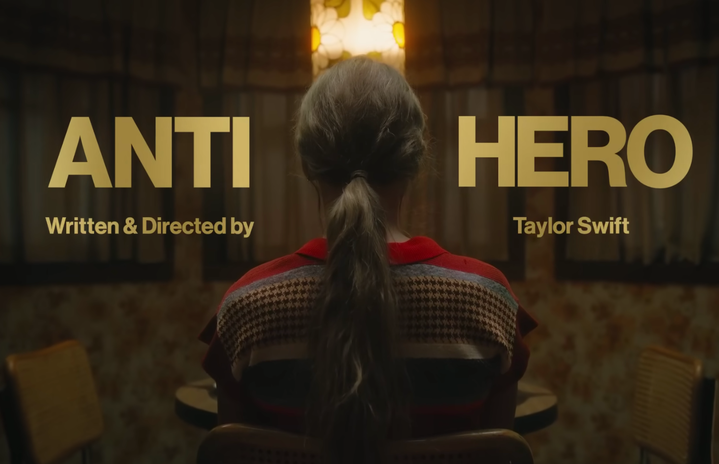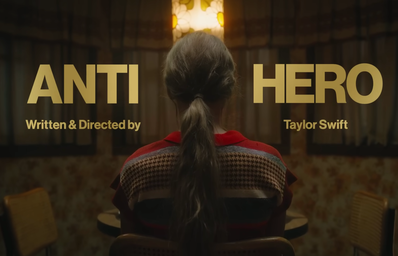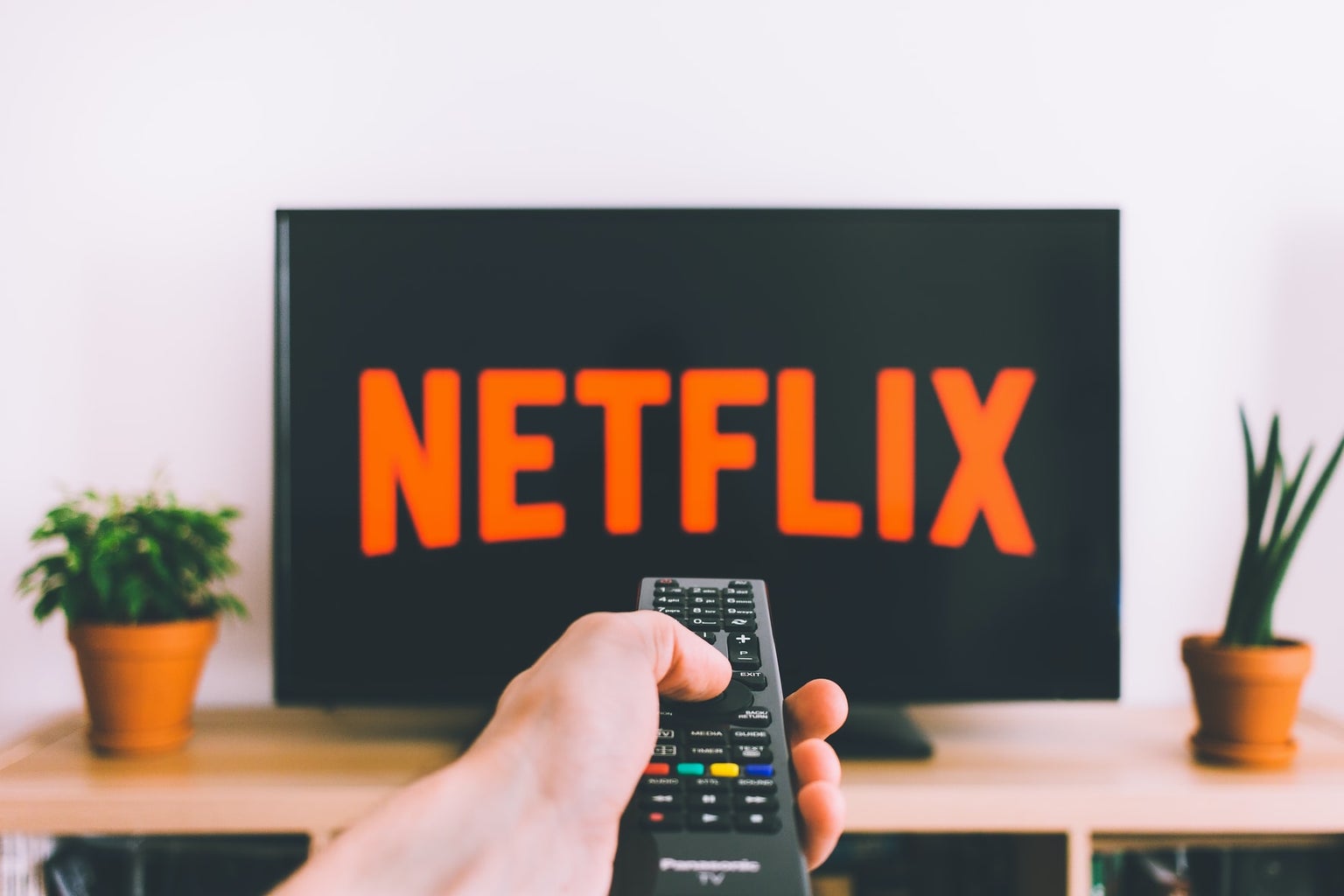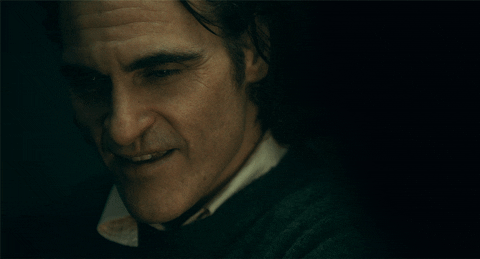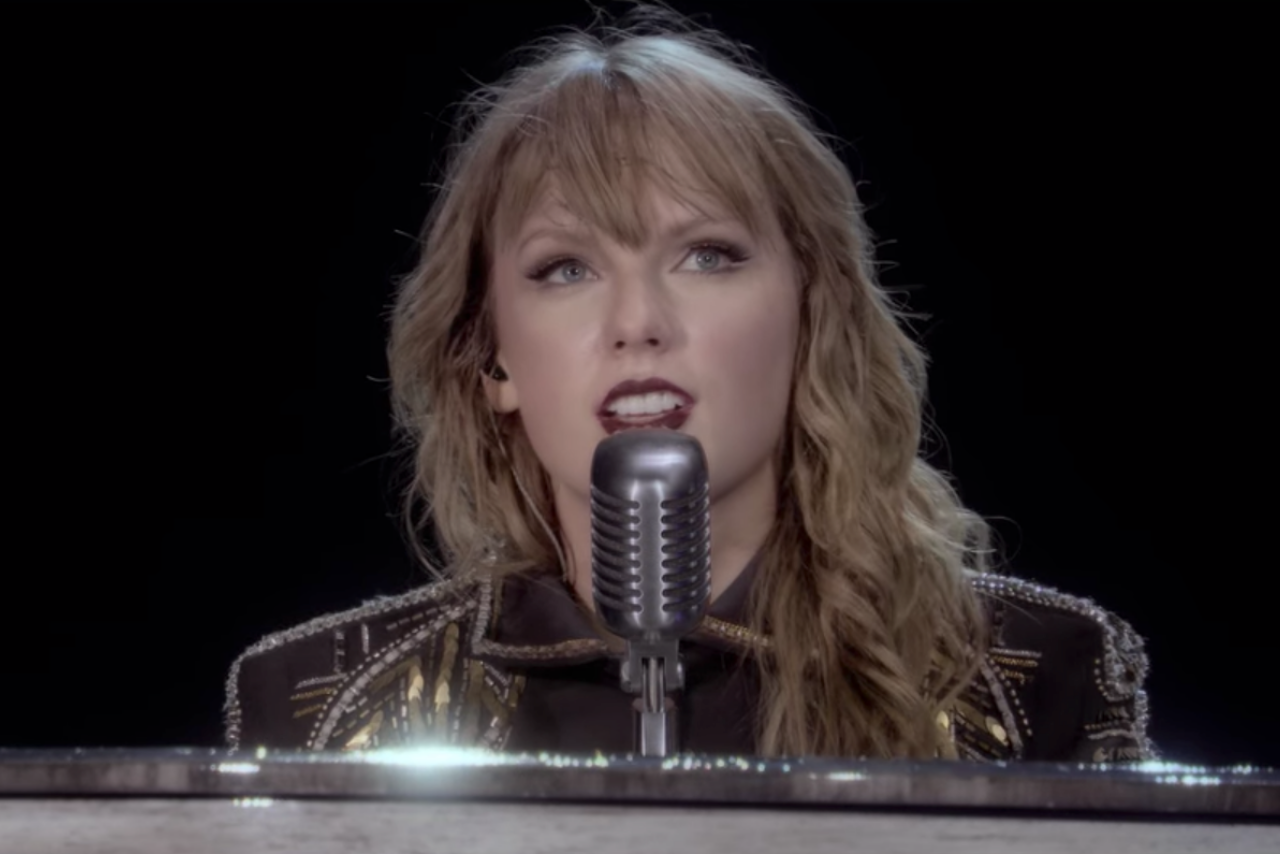“It must be exhausting always rooting for the anti-hero.” Taylor Swift insists in her self-deprecating lyrical masterpiece, “Anti Hero.” But the song’s catchy, upbeat tone suggests that Taylor is actually well-aware of the fact that these days, we actually DO love rooting for her, along with all the other complicated, narcissistic characters of the entertainment world. From men with tattoos liking Breaking Bad’s lead character Walter White to women hanging on to every line of dialogue from the various monologues of Gone Girl’s Amy Dunne, we all have our problematic faves. There’s something about rooting for an anti-hero that feels so wrong yet so right.
There isn’t an exact formula for what makes an anti-hero, but there are a few key components that define the anti-hero’s role within a story. As explained by Story Flint, generally speaking, the anti-hero is the protagonist of a story who lacks qualities present in a traditional hero and often instead embodies traits you usually see in a villain. The anti-hero differs from the villain because the story is centered around them. They are the driving force propelling the plot forward rather than acting against it.
A typical anti-hero is not entirely bad, or at least, they have a seed of goodness inside them. Maleficent from, you guessed it, Disney’s Maleficent, has a cold and devious exterior but develops a soft spot for Princess Aurora. That soft spot incites a spark of hope in the viewer that although frightening and vindictive, Maleficent isn’t entirely lost. Although morally twisted, the anti-hero often believes that what they are fighting for is a righteous cause. Take Michael Corleone from the Godfather. Despite his often-ruthless actions, he believes that ultimately it is his duty to fight for and protect his family. That tiny seed of purpose or perceived righteousness is what makes an anti-hero interesting, and often very relatable.
Relatability
As stated by Psychology Today, we tend to root for characters with whom we feel we have the closest psychological connection. There’s a reason that perfect, cookie-cutter characters don’t have as many fans. How frustrating is it to watch a character that knows exactly what to say or do all the time? All humans are imperfect, and so we’re naturally drawn to characters with flaws that remind us of ourselves. It speaks volumes that one of the best-selling children’s books, Diary of a Wimpy Kid, has its own anti-hero in the form of 12-year-old middle schooler Greg Heffley. Greg consistently acts in his own self-interest, chasing fleeting dreams of middle school popularity at the expense of his closest friends. He is manipulative, narcissistic, and above all, a wimp. And yet, my peers and I felt a connection to his character, because he kept it real.
More than that, the anti-hero often has a very intricate and complex backstory. This is because we don’t need an explanation of why someone would do good things, that’s intrinsically understood. It’s much more interesting to explore why someone is bad, as that is usually a result of deep internal conflict. Therefore, the anti-hero is often portrayed as somewhat of a misunderstood outcast, as many can relate to feeling like they don’t fit into society’s expectations of them. These backstories help to flesh out well-developed characters with motivations that the audience empathizes with.
Fantasy Fulfillment
One of the greatest appeals of fiction is to live vicariously through someone whose life is fundamentally different from our own. Within a fictional setting, we can enjoy viewing these fantasies with the knowledge that no real person is getting hurt or being impacted by the immoral actions of others. We love a good anti-hero because through them is a way for real-life viewers to safely engage in activities we would normally never allow ourselves to do or are socially forbidden.
Darker characters can act on impulses we don’t act on, so we feel a sense of catharsis watching them misbehave. This makes the anti-hero interesting to watch because there’s a lack of predictability when they’re not always taking the morally correct course of action and acting solely in their own self-interest. Following our innermost desires is so contrary to how we’re raised, and to do so without suffering the consequences feels incredibly freeing.
Think of the Joker from, well, you know. The Joker’s titular character is a lonely misfit who is driven to insanity by the oppressive society he lives in, and his murderous rampage comes from a place of revenge. That feeling of justified rage towards the people who hurt him is what makes him so compelling. You can’t help but feel a little bad for him, at least in the beginning, so watching him rebel against the very authority figures and societal conventions that hurt him feels cathartic.
Dynamic Characters
Whether that tiny seed of goodness previously mentioned blossoms into a redemption arc or the anti-hero fully abandons all remnants of morality and embraces their darkness, the possibilities are endless. The anti-hero makes for an interesting, dynamic character because they subvert initial expectations. Without the premise of a typical hero’s journey, there’s no telling where the story will go next.
For the anti-hero, many of their challenges involve an internal struggle between good and evil. This is a key part of what makes Walter White from Breaking Bad a fan favorite. As his previously stale and uneventful life devolves into a deluge of crime and violence, he finds his own morality at the center of it all. His battle between doing what is right versus committing to the dangerous life he put himself in is a constant and captivating fight.
In the event that the anti-hero does have a redemption arc, the anti-hero must atone and occasionally even apologize for their previous mistakes. A process that many of us, as flawed people ourselves, are painfully familiar with. This allows for a level of growth not possible for a character who has always made the morally correct choice. In the end, good character writing is all about making a well-developed person that people care about because they see themselves in them.
As the cultural icon and self-described anti-hero herself puts it: “I’ll look directly at the sun but never in the mirror.” Anti-heroes of the page and screen allow us to indulge in our innermost desires without the burden of having to examine our own reflections in the mirror too closely.
